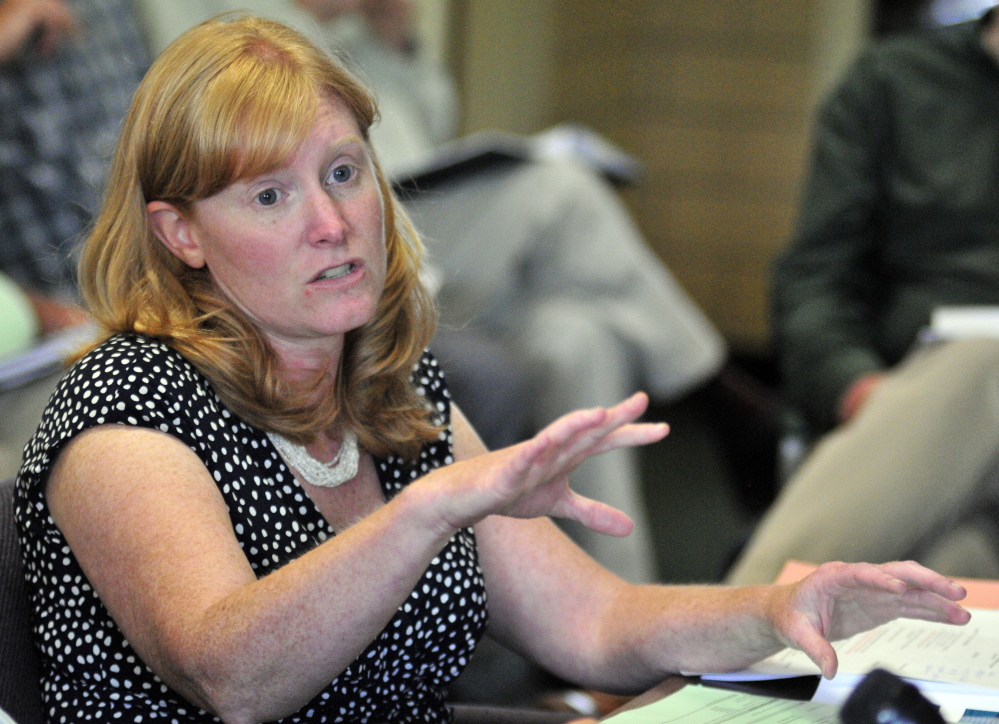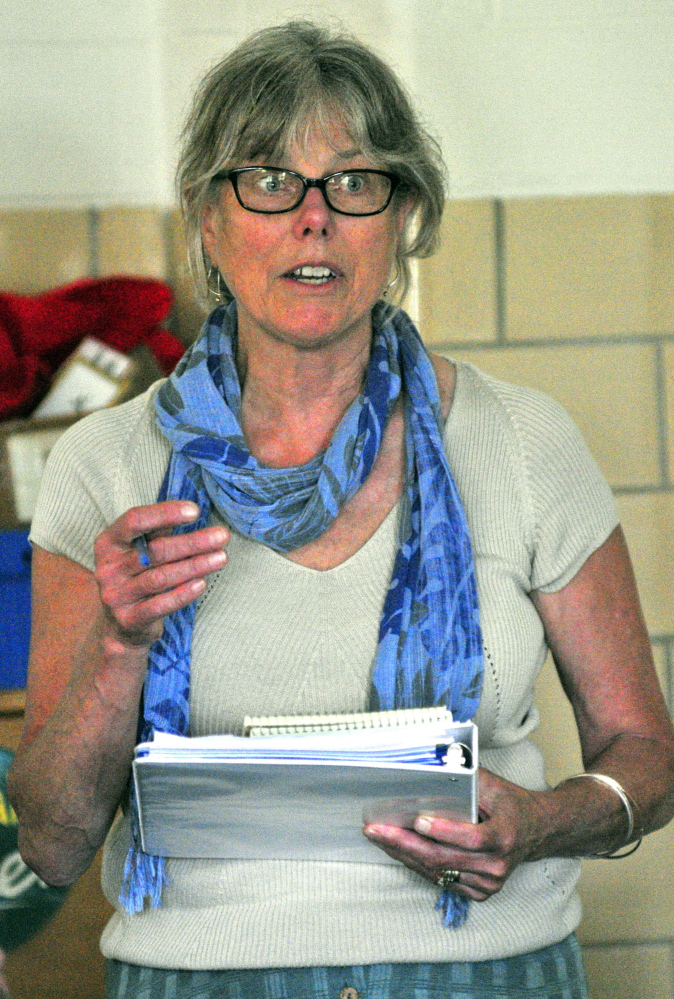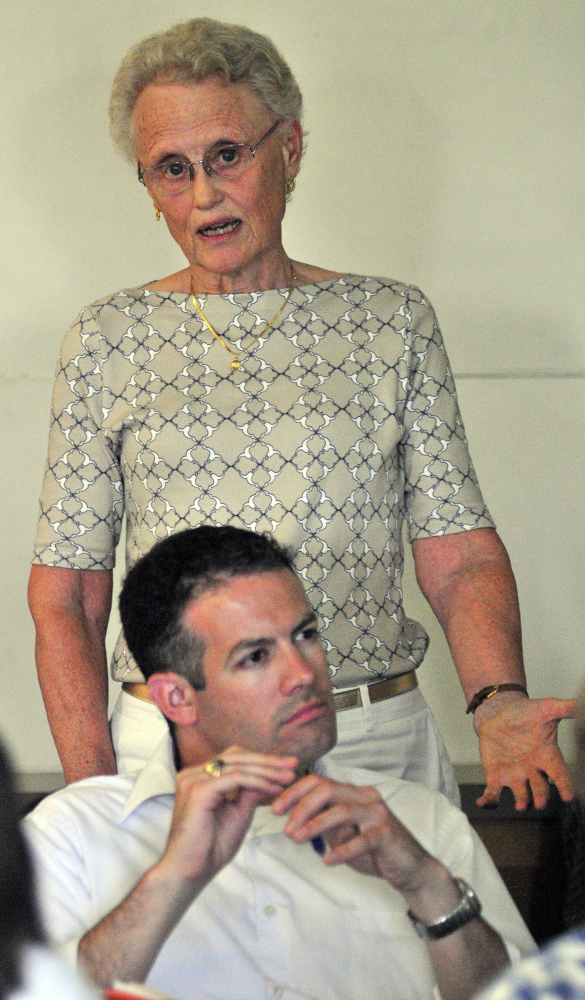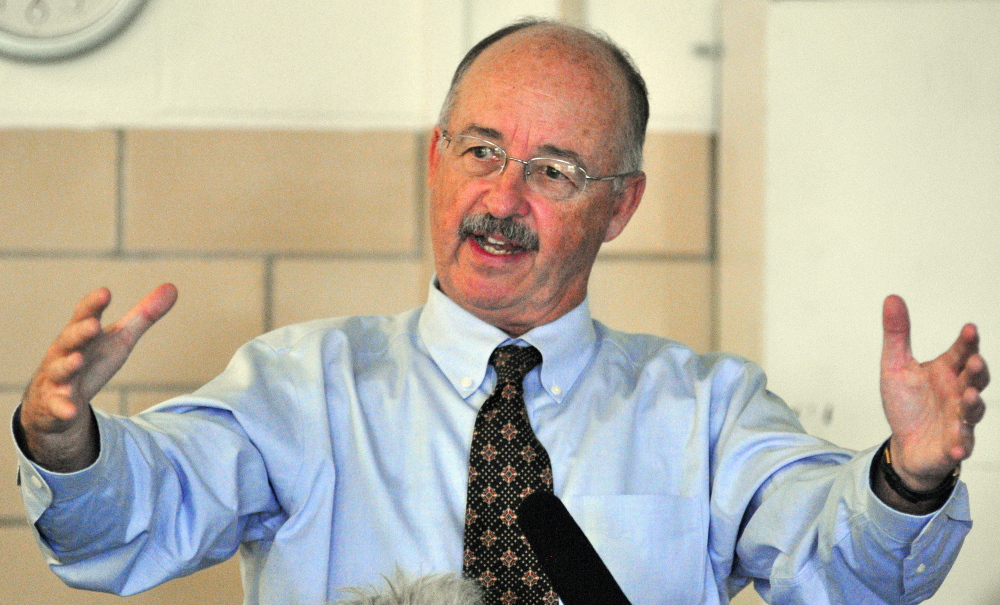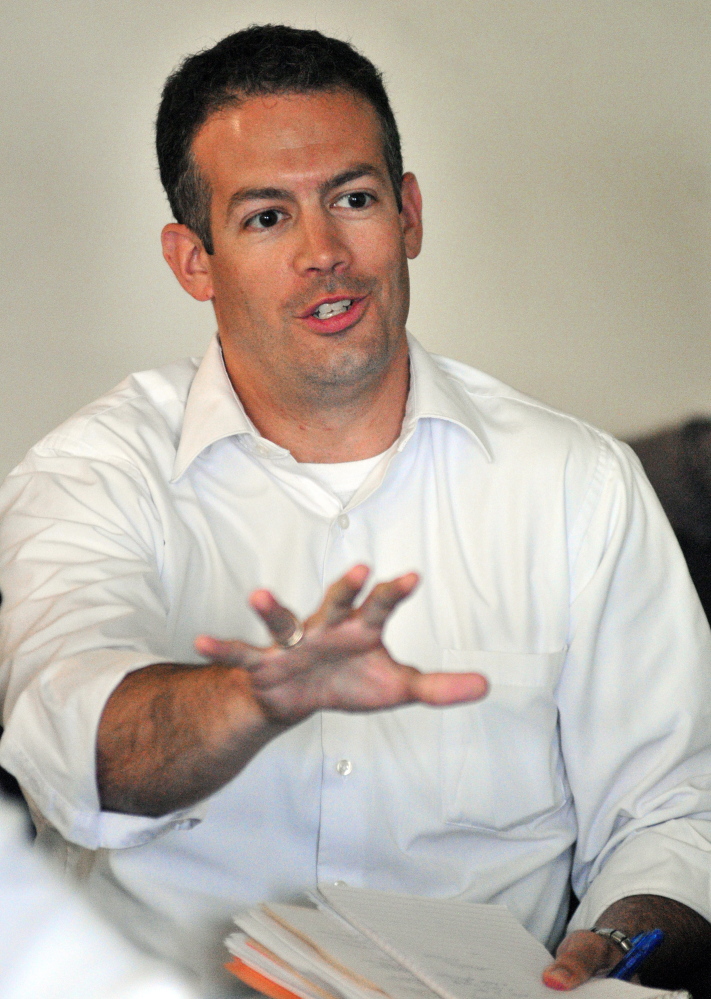AUGUSTA — About $6.5 million in voter-approved bonds for the Land for Maine’s Future program that Gov. Paul LePage withheld as a political bargaining chip have effectively expired, imperiling some conservation projects funded by the program.
Director Sarah Demers told LMF board members Tuesday that although the funds – recommended by the Legislature in 2009 and approved by voters in 2010 – don’t technically expire until November, there is no opportunity for the bonds to be sold.
In Maine, state bonds require support from two-thirds of lawmakers and approval from voters. Once bonds are approved by the Legislature and voters, the governor decides when to issue them to the market. They are purchased by investors, who are essentially acting as a bank and loaning money to the state in return for a specified rate of interest. Most bonds typically expire after five years if not issued, unless the time period is extended by lawmakers.
Theresa Kerchner, executive director of the Kennebec Land Trust, said her organization is involved in a Land for Maine’s Future project to conserve 164 acres adjacent to the State House in Augusta. That project is relying on $337,500 in LMF bond funding that has been approved by the board but has not been released by the governor.
Kerchner said Tuesday that the project is in limbo and the trust is looking into whether it can borrow money in order to meet a deadline for the land transaction to go forward.
APPROVED PROJECTS SHORT ON FUNDS
Other projects could be affected as well.
The governor also has withheld another $5 million in land conservation bonds approved by voters in 2012.
At present, the LMF program has just $2.2 million in cash to fund the 36 projects that have been approved, including one to conserve 215 acres around Knight Pond and Blueberry Hill in Cumberland and North Yarmouth.
The board cannot fund all of the approved projects with the money it has on hand.
Deputy State Treasurer Kristi Carlow said in an interview that the state treasurer only goes to the bond market once a year, typically in June. Carlow said the treasurer has already completed a bonding request for the year, therefore the $6.5 million in LMF bonds have effectively expired.
However, there may be another opportunity to sell the 2009 bonds. Under the state constitution, lawmakers have until two years from November to extend the lifespan of the bonds by five years through a simple majority vote and without additional approval from voters. Such a move would likely be vetoed by LePage, which would require a two-thirds vote of the Legislature to be overridden.
Tuesday’s Land for Maine’s Future board meeting further highlighted the growing tension between members and the LePage administration.
No votes were taken on any pending projects Tuesday because there was not a quorum of members present. One public member was absent and three others – each a member of LePage’s Cabinet – did not attend.
Board Chairman Bill Vail said he did not receive any explanation from the absent members, but Bennett said the three commissioners each had prior commitments or were dealing with unexpected matters.
In addition to the debate over funding and whether the bonds will be sold and when, board members heard from one of LePage’s advisers, Jonathan Labonte, who works in the Office of Policy and Management.
Labonte told board members that he was tasked by the governor to review LMF’s operation and report back to the Legislature by Nov. 1. Labonte’s report will replace the usual annual report that would be produced by the LMF director, Demers, and is a sign that LePage is making good on his promise to “investigate” the program.
Among the things Labonte plans to look at will include how the program is structured, how its funds are distributed and whether it could make improvements.
BOARD FRUSTRATED, OVERRIDE VOTE
The LMF program has helped conserve more than 500,000 acres throughout the state since 1987, through land sales or conservation easements. The majority of those lands were working forest, farmland or commercial waterfront.
The program is financed through bonds approved by voters and requires that all LMF lands provide access to the public for recreational activities such as hiking, hunting or fishing.
Recently, though, LePage has used the program bonds as a bargaining chip, politicizing an organization that has been largely apolitical.
This spring, LePage acknowledged that he was holding back the bonds to gain support for his plan to increase timber harvesting on state-owned lands in order to pay for residential energy-efficiency programs.
On Tuesday, some LMF board members expressed frustration over the governor’s recent actions.
Neil Piper said it seemed to him that LePage was trying to take over the board.
Vail, the chairman, also said he was surprised and offended when he heard the governor wanted to investigate the LMF program.
Labonte insisted that the governor is not trying undermine LMF, he just wants more oversight.
Despite the increasing tension and the uncertainty over the soon-to-be expired bonds, there is a possibility that the governor could be forced to sell them.
A bipartisan bill sponsored by Sen. Roger Katz, R-Augusta, passed 26-9 in the Senate and 102-48 in the House – above the two-thirds majority needed to overturn Gov. LePage’s veto.
The override vote is scheduled for Thursday, when the Legislature reconvenes.
Katz’s bill is not among the 70 bills that are the subject of a dispute between LePage and the Legislature over whether he still has time to veto them.
Staff Writer Steve Mistler contributed to this report.
Send questions/comments to the editors.

